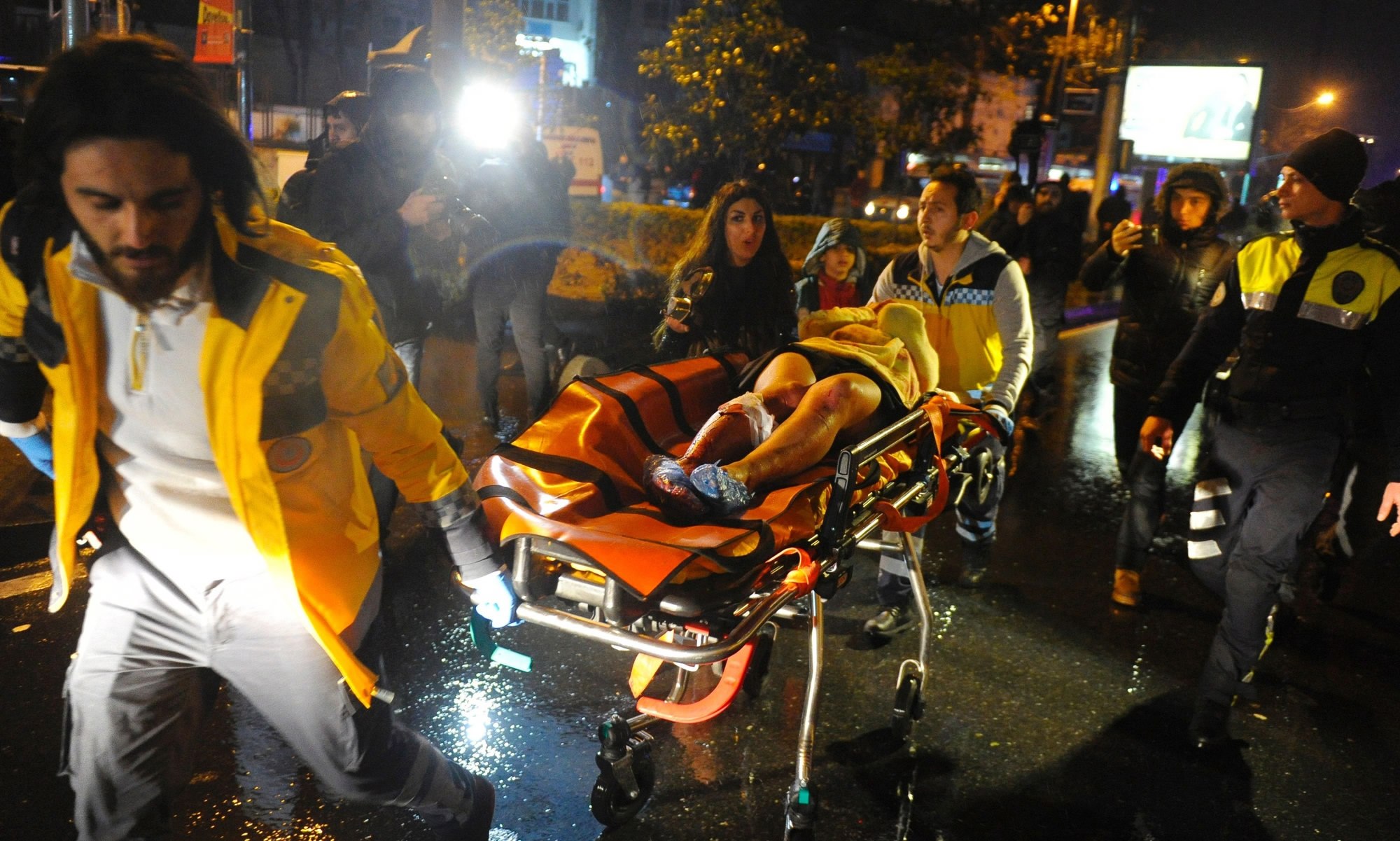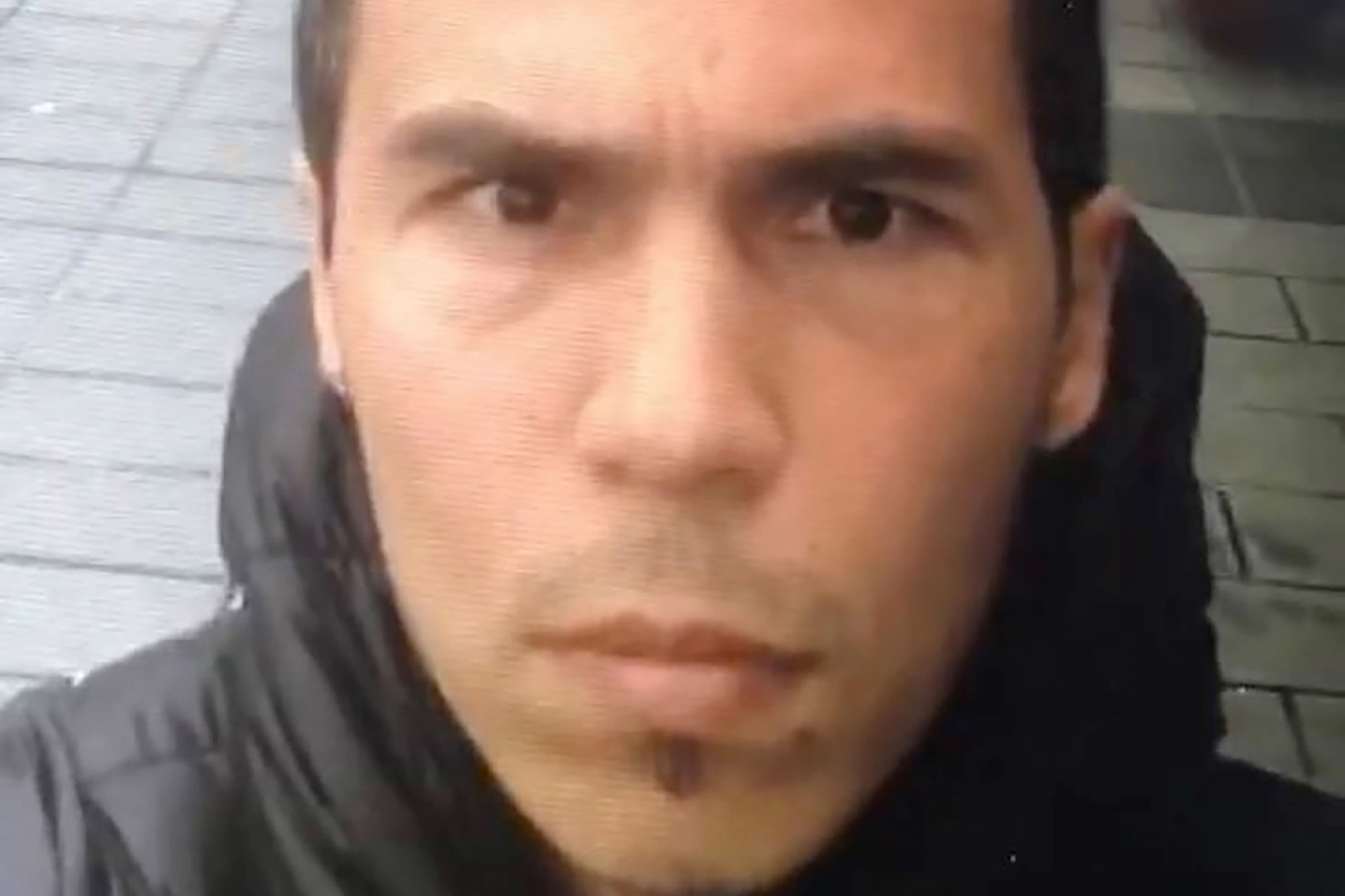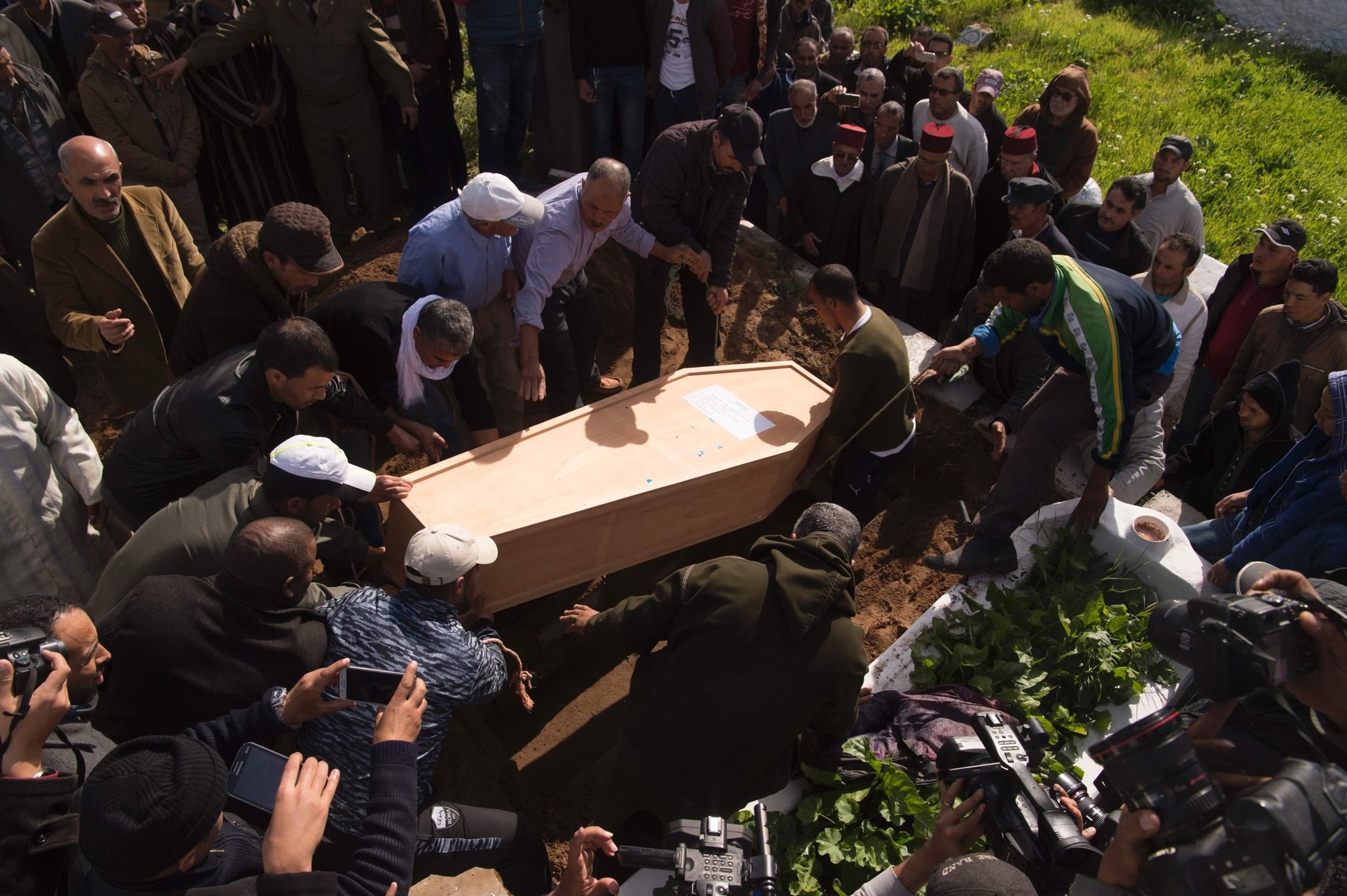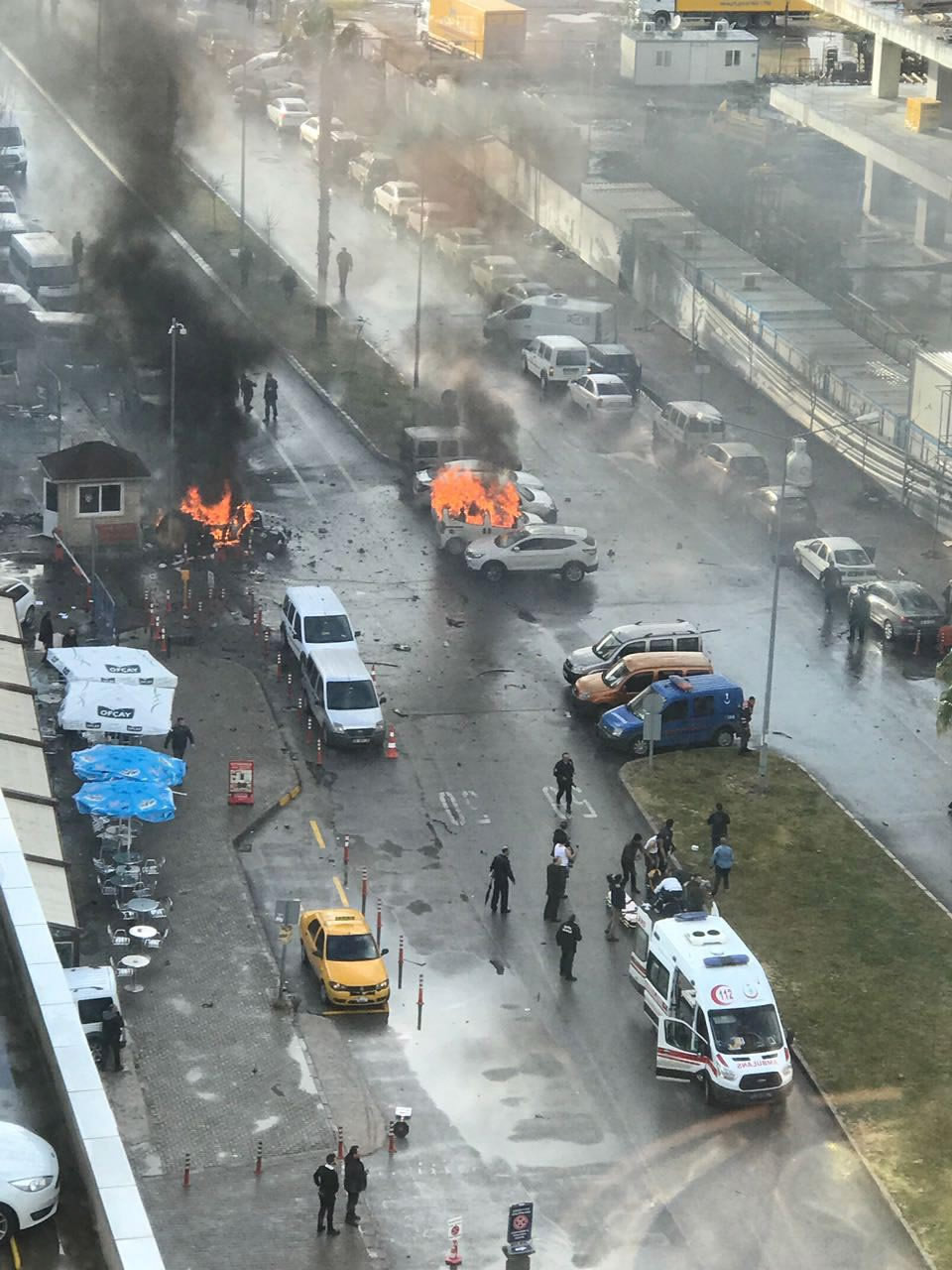
China
12:10, 05-Jan-2017
Was the Istanbul nightclub shooter a Chinese Muslim?
Updated
10:31, 28-Jun-2018

Online speculation has suggested that the shooter behind the Istanbul New Year's Eve nightclub attack could be a Chinese national.
39 people, including 25 foreigners, were killed in the attack, which took place last Sunday in Turkey's largest city, and was claimed by ISIL extremists.

First aid officers carry an injured woman at the site of the attack on January 1. /CFP Photo
First aid officers carry an injured woman at the site of the attack on January 1. /CFP Photo
Turkey has been looking for the shooter since. The country's Foreign Minister Mevlut Cavusoglu said in a televised interview on Wednesday that the gunman had been identified, with no more details.
But according to British newspaper The Times, he confirmed that local police believe the attacker is a Uygur from China who entered the country via Kyrgyzstan.

Main suspect in the Reina nightclub rampage. /CFP Photo
Main suspect in the Reina nightclub rampage. /CFP Photo
The gunman's identity remains unclear, as photo of a Kyrgyz passport showed by Turkish media turned out unrelated.
People that may be related to the shooter are being investigated. Some 20 people, including 11 women, were taken into custody in police raids in the Aegean port city of Izmir, as the state-run Anadolu agency reported, adding that some of those arrested were Uygurs.

Funeral of Moroccan Rabia el-Moustain, victim of the attack. /CFP Photo
Funeral of Moroccan Rabia el-Moustain, victim of the attack. /CFP Photo
At the time of publishing this article, neither CGTN nor other media has found solid proof of the shooter's nationality. But Turkey's Deputy Prime Minister Veysi Kaynak told a local TV channel on Thursday that "the circle is closing in on him".
Izmir also witnessed a car bomb attack on Thursday that killed four and injured seven, with Turkey's Prime Minister Binali Yildirim blaming the outlawed Kurdistan Workers' Party for the attack.

Burning cars are seen after an explosion outside a courthouse in Izmir, Turkey,
January 5, 2017. /Reuters Photo
Burning cars are seen after an explosion outside a courthouse in Izmir, Turkey, January 5, 2017. /Reuters Photo
Turkey has been in conflict with ISIL since early 2013, while being accused of indirectly supporting the militant group by allowing the group to profit from smuggling oil.

SITEMAP
Copyright © 2018 CGTN. Beijing ICP prepared NO.16065310-3
Copyright © 2018 CGTN. Beijing ICP prepared NO.16065310-3